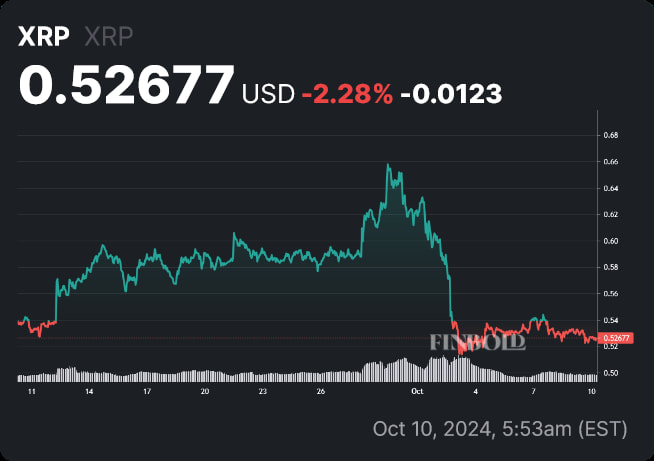On October 10, Ripple announced the launch of new features for Ripple Custody, its digital asset storage service geared toward banks and fintech companies.
Aaron Sletterhaugh, Senior Vice President at Ripple, stated that features such as anti-money laundering (AML) monitoring, pre-configured policy and operational settings, as well as integration with the XRP ledger and a user-friendly interface, will appeal to institutional clients as well as crypto natives looking to keep digital assets.

Regulatory actions also added fuel to the fire — although rulings in the case brought by the SEC against Ripple were largely positive in August, the October 3 appeal from the SEC brought legal concerns and uncertainties back to the forefront.
After the appeal, the company’s chief legal officer (CLO) Stuart Alderoty, accused the agency of litigation warfare, while also stating that Ripple is considering filing a cross-appeal, with a deadline of October 17.
(1) The SEC's decision to appeal is disappointing, but not surprising. This just prolongs what's already a complete embarrassment for the agency. The Court already rejected the SEC’s suggestion that Ripple acted recklessly, and there were no allegations of fraud and, of course,… https://t.co/PQozMMtthf
— Stuart Alderoty (@s_alderoty) October 2, 2024
Ripple’s new revenue stream and XRP price action
While the ongoing effort to diversify revenue and broaden its regulatory licenses is a wise strategic move, particularly as the crypto custody market is forecast to reach $16 trillion by 2030, it’s unlikely that we will see significant changes in price action due to these positive developments.
The value of XRP will remain dominated by the dance of supply and demand until 2027 — when the escrow schedule is set to conclude.
While good in the long term for the business, this revenue diversification won’t have much of an effect. For one, most of Ripple’s revenue is tied to the value of XRP — this will not, on its own, diversify revenues enough to bring substantial investments aimed at increasing the ecosystem’s capabilities. While positive press can have an effect, this will most likely be overshadowed by ongoing legal and regulatory issues.
 finbold.com
finbold.com
